
Paterson is the new film from acclaimed auteur (and Iggy Pop fan) Jim Jarmusch. A man who enjoys character studies that are never rushed for the sake of plot progression, existing in some semblance of real time, watching a Jarmusch film involves a lot of patience on behalf of the viewer. If you’re a fan of his style, this patience pays off, and if not, you may be bored out of the cinema. And let’s just say from the outset, that if you don’t fit into the former category, then this may not be the film for you – as Paterson might just be his most Jarmuschian film yet.
Paterson takes us into the week of the life of the the film’s namesake (Played by Girls‘ Adam Driver), presumably named – lazily – after the town in which he was born. He is, by every definition, unremarkable. He drives a bus, he has a partner and a dog, seems mildly satisfied by his life, and enjoys a drink at the bar at the end of the night. His wife Laura (Golshifteh Farahani), seems to take some advantage of his kind nature and spends most her day painting their house black and white. The only thing that separates him from most is that he love poetry, and spends most of his free time writing poems in his “secret” journal. The poems sit on the literal forefront of the film, with his writing appearing on screen and sitting as a voice over, in a technique which almost sees Paterson exist as two characters. The one we see on screen leading an unremarkable life, and the poet.
Having poetry as a theme of his work seems apt, with Jarmusch’s scripts feeling like poetry themselves. Whether in dialogue or in action, his words jump off the screen in a beautiful array of colour and sound. Take an early scene where Paterson has to fix his mailbox before he walks in his house. You can almost read the script directions as he does it, “Paterson returns home and notices his Mailbox is askew. He fixes it as a man who knows what he’s doing – he’s done this before. Presumably every day.” And in a film which documents the mundane life so brilliantly, the purposefulness of these scenes becomes the equivalent of a breathtaking CGI action sequence in a Michael Bay film. And much like an action sequence, the fixing of the mailbox sets up a later moment in the story that one might refer to as “a twist”. Just as everything has its place in Paterson’s life, every moment has its place in this well contained script.
Adam Driver holds the film on his shoulders, and does well as the unassuming and rather unremarkable Paterson. In spite of no typical villain in the story (I say typical because it could be argued that there is a villain, but I feel that may spoil too much – and there’s not enough that happens in the film to warrant spoiling anything here), or some sort of stereotypical mountain for our hero to climb, Jarmusch holds a certain level of tension over the audience. You know the story has somewhere to go, and it’s likely something that will knock the rhythm of Paterson’s life off its pendulum. But you don’t know when it will come, nor how it will come. And as you get three quarters through the film, you start to wonder if anything much will happen at all.
And that’s okay in a Jarmusch film. Just like in life, he comes to celebrate the little victories we experience each and every day, but rarely talk about, nor remember. It is worth noting, too, that the film is purposefully less stylistic than his usual work, and in this example of modern life, where even Laura’s creativity is produced as a consistent black and white (right down to the guitar she takes it on herself to purchase), it seems there’s no real escape from the mundane nature of it all. But I digress…
Though this is Driver’s film, there are some excellent performances on the periphery. Frank Harts delivers some excellent scenes as Driver’s colleague Luis, Barry Shabaka Henley is as enjoyable as always as Doc, the bar owner, and Golshifteh Farahani plays his wife with elegant flair.
Paterson won’t be a film for everyone. It holds few of the clichés we have come to expect from traditional western cinema. But that is, in effect, its point. In Paterson we can all see part of ourselves – or perhaps a version of ourselves we are afraid of becoming (depending on the type of person we are). There’s nothing particularly interesting about us. There’s nothing particularly interesting about Paterson. Most days, there’s nothing particularly interesting about his life. Most days, there’s nothing particularly interesting about ours. We survive. We live. We love. We create. And in that breath, Jarmusch has created one of the most beautiful and realistic portrayals of humanity that I’ve seen in recent memory. He’s really out-Jarmusched himself here.
Review Score: FOUR STARS (OUT OF FIVE)
Paterson is screening as part of the Sydney Film Festival. The screenings this week have sold out, but to meet demand, a special screening will be held on the 22nd of June at Palace Cinemas on Norton Street. For more details head HERE.
———-
